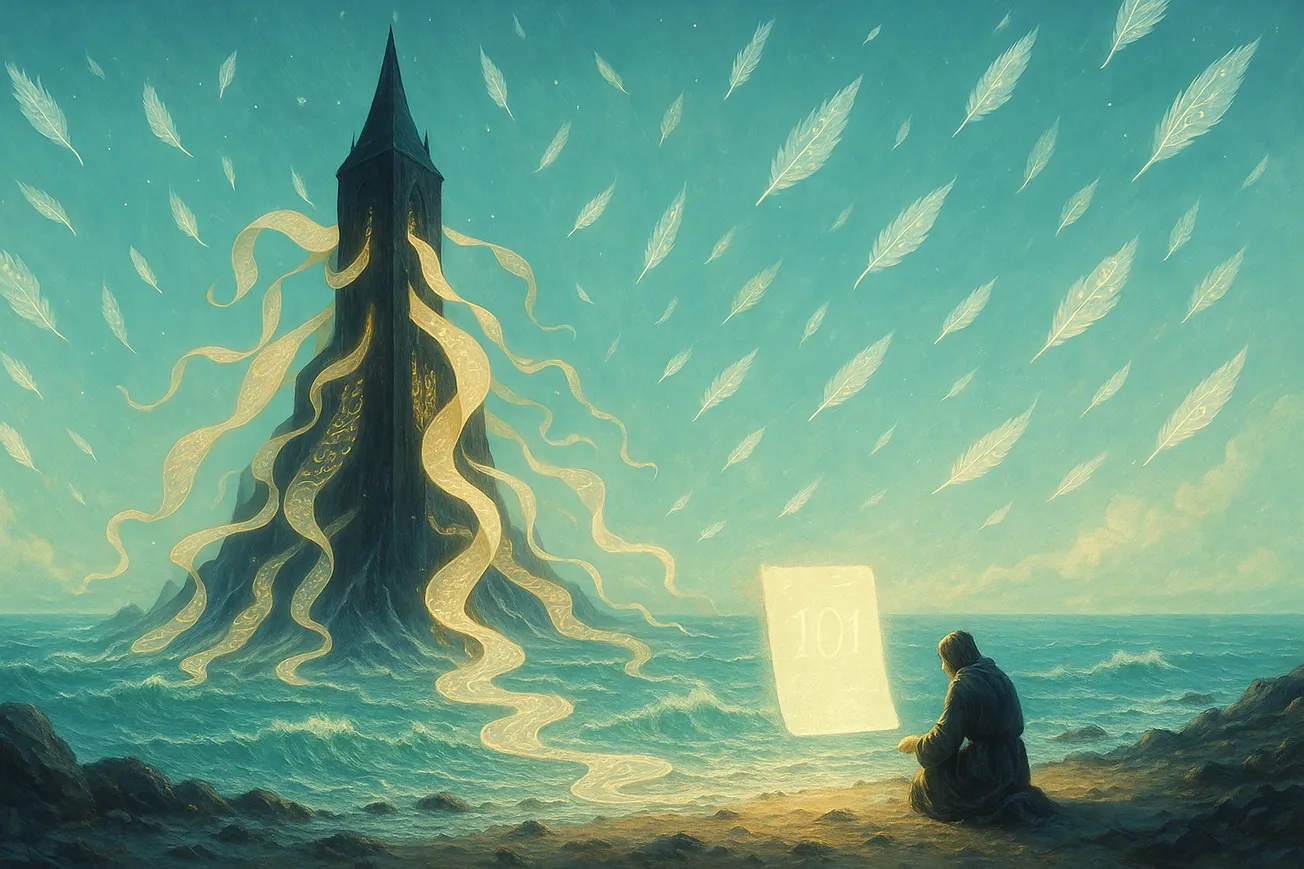🌈 The Fractal Story Engine | Meta-Meaning, Knowledge, Language | (15) MMK-002-F1
The first time a year fell from the sky, it landed like a feather on the tongue of a fisherman named Jao. He tasted the memory of a future harvest, the curve of a child’s question, and the last song of an unknown widow. He spat it out, terrified. It wriggled in the dirt beside him, transmuting into a glyph that burrowed into the hull of his boat.
The next day, the years began to fall in earnest.
They dropped from cloudless skies like ash shaped by chronology. Each one was a sliver of lived time not yet lived, seconds shivering with unborn laughter, hours dense with uncommitted regrets. Villagers scrambled to gather them, stuffing time into clay jars, tucking hours under straw mats, hoarding decades beneath floorboards.
At first, it was a blessing. Crops knew when to grow. Lovers anticipated betrayal before the kiss. Children skipped their awkward years entirely. A new profession emerged: Year Brokers, who traded weeks like livestock and smuggled nostalgia into markets carved from old calendar stones.
But the falling did not stop.
Soon, years stacked up like snowdrifts. The streets grew clogged with futures no one had time to live. People tripped over their own possibilities. Whole houses collapsed beneath the weight of what could have been.
The king issued a decree. All surplus years must be delivered to the Tower of Accumulation, a black spire on the edge of the ocean where the waves recited forgotten births and unmade wars.
There, the Archivist waited.
They were not named. They had no voice, only a long scroll of skin etched with the words of unspent time. Their job was to receive each delivered year, translate its pulse, and catalog it by resonance: hope, ruin, mercy, frost, teeth, and others with no names.
But as the decades fell, then centuries, then the alien hours of planets unborn, the Archivist’s scroll began to unroll itself. It coiled around the tower, out through the portholes, into the sea, into the dreams of starfish, into the veins of birds who now remembered lives that never were.
One morning, a child from the inland dunes wandered into the tower. She had caught a “Moment,” a sharp, glittering splinter that refused to be stored. It hummed. It refused labels. It wept in ink.
The Archivist took it in their palm. It cut them.
A word appeared on their skin: again.
That night, they climbed to the top of the tower. The scroll no longer obeyed them. It wrote in spirals now, in tenses that canceled each other out. It began erasing entries, deleting years as if they had never dropped, never bruised the earth, never whispered into the wrists of lovers about to part.
When the people awoke, their memories had been rearranged. They remembered different weddings, other names for their dogs, a river that no longer existed but was missed like a tooth.
In the center of the nation, a new year began to fall.
It was not future.
It was not past.
It was blank.
The villagers did not touch it. The brokers left it be. Even the king, who had by then become two kings in conflict with their own histories, refused to claim it.
The Archivist descended from the tower with their skin unreadable, their scroll detached and fluttering through empty time. They walked until they reached the blank year, bent down, and placed their palm upon it.
It did not hurt.
It opened.
And inside was not a story, but a doorway.
And inside the doorway, a room.
And in the room, a single chair.
And on the chair, a page.
Still white.
Still breathing.
Still waiting.

